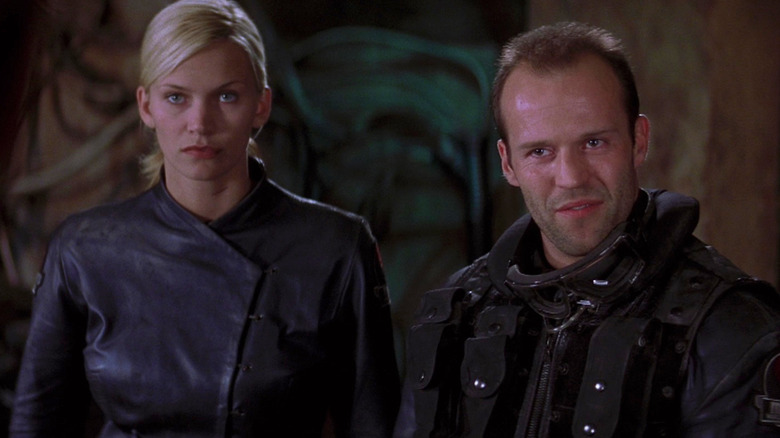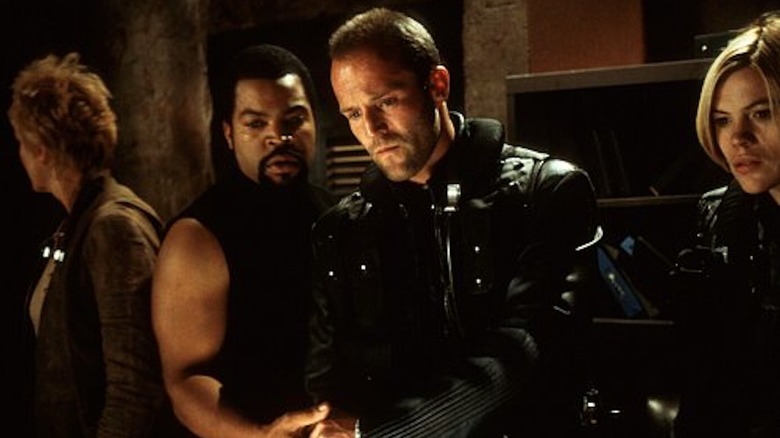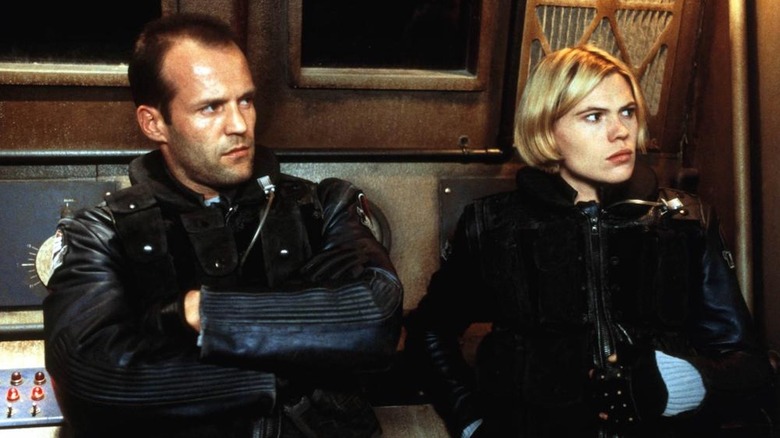
The universe can be a pretty crummy place sometimes, so it’s important to seek out every last nugget of joy or, absent something so extravagant, just a smile here and there to ward off total despair. You could argue that we don’t even deserve the latter in extraordinarily crummy times such as these, and maybe this is true, but I like getting out of bed in the morning, so I’ll afford myself the privilege of hope however it materializes. Did the Cleveland Cavaliers win last night? That’s one foot on the floor. Did I text with some out-of-town friends I haven’t personally seen in months or years? There’s another. Did John Carpenter just win a Lifetime Achievement Award from the Los Angeles Film Critics Association? Oh baby, we’re up and headed for that first cup.
The New Hollywood era produced more commercially successful and critically acclaimed filmmakers than the man who gave us “Halloween,” “The Thing,” and “Big Trouble in Little China,” but there is not a single director amongst their ranks with a more ardent fanbase. Though he’s never come close to being nominated for an Academy Award, many artists who’ve won at least one absolutely revere him (e.g. Quentin Tarantino, Guillermo del Toro, James Cameron, Bong Joon-ho, and Danny Boyle).
Since he seems to have wound down his film career to concentrate on his music, thus placing him out of play for a competitive Oscar, Carpenter should be on the Academy’s radar every year for a Governors Award. Perhaps that LAFCA honor will grease the skids, and, hey, maybe those Oscar-winning acolytes can lobby on his behalf. One major hurdle, however, will be the fact that some of Carpenter’s most celebrated works, particularly “The Thing” and “Big Trouble in Little China,” were not only critically reviled at the time of their theatrical release, but also massive box office flops. It should be about the art and his remarkable influence, right? Alas, box office matter to the Academy, and if they’re determined to be petty, they could look to the back-third of Carpenter’s career for a bomb starring Jason Statham — one that even the director’s most ardent fans struggle to defend.
Jason Statham wasn’t a big enough star in 2001 to save Ghosts of Mars
John Carpenter’s “Ghosts of Mars” opened over the weekend of August 24, 2001, amidst a crowded, late-summer rush that included Kevin Smith’s “Jay and Silent Bob Strike Back,” Woody Allen’s “The Curse of the Jade Scorpion,” Michael Tollin’s “Summer Catch,” and a pre-“Donnie Darko” Jake Gyllenhaal in “Bubble Boy.” There was reason to be bullish on its box office potential, but not because it starred Jason Statham. 24 years ago, Statham was probably best known to U.S. moviegoers at the time for his appearances in Guy Ritchie’s “Lock, Stock and Two Smoking Barrels” and “Snatch.” He was also fourth-billed in James Wong’s “The One” behind Jet Li, Delroy Lindo, and Carla Gugino. He was on his way up, but few people were rushing out to the multiplex for the new Statham as the world unknowingly hurtled toward September 11th.
Carpenter’s sci-fi/horror/Western hybrid about (deep breath) a perilous prisoner transport on a colonized Mars where the ghosts of the planet’s indigenous people have vengefully transformed its recently arrived human inhabitants into zombies (exhale) did star Ice Cube and Natasha Henstridge. The former, playing a badass felon sporting the hardcore moniker of Desolation Williams, was the main selling point on the strength of his thriving hip-hop career and big screen “Friday” franchise. Unfortunately, Screen Gems couldn’t figure out which element of Carpenter’s genre stew to market, so it just threw all of it at the wall and hoped to hell people would show up.
A few years later, a Cube-and-Statham two-hander would’ve been enough to guarantee a huge opening weekend. But “Ghosts of Mars” was never going to be more than a one-weekend wonder because it’s Carpenter working the same high-camp side of the street that turned off moviegoers (and some fans) with “Escape from L.A.” I actually love this take-the-piss phase of Carpenter’s career (even if it yielded no classics), but “Ghosts of Mars” still feels like a half-imagined melange. At any given moment, you want it to lean harder into sci-fi or horror or, especially, its Western elements, but it refuses to commit to anything. It hurtles along at a decent pace, but the film ultimately feels like it’s simply in a rush to end.
The failure of Ghosts of Mars hurt John Carpenter much more than Jason Statham
Despite dire reviews (it boasts a Metascore of 35) and muddled marketing, John Carpenters’ fans turned out for “Ghosts of Mars” (perhaps hoping for a Snake Plissken cameo). Unfortunately, no one else did. The film opened in ninth place for the weekend with a $3.8 million gross on 2,048 screens. It earned a C- Cinemascore, and, after 130 days in release, concluded its theatrical run with a $14 million worldwide gross on a $28 million dollar budget.
The damage done to Carpenter’s filmmaking career was considerable, though he’s repeatedly said he was too burned out after directing after “Ghosts of Mars” to pursue a new project. After a four-year hiatus, he directed two very good episodes for Showtime’s “Masters of Horror” anthology series (“Cigarette Burns” and “Pro-Life”), but wouldn’t make another feature until 2010’s “The Ward.” The independently produced psychological horror flick brought Carpenter back to his scrappy roots, and, if nothing else, it’s far more formally coherent than “Ghosts of Mars.” It’s possible the old master could surprise us with another film, but he’s currently pouring every ounce of his creative passion into his music, and it’s excellent stuff!
Movie-wise, all that needs to be done is for the Academy to honor one of the most gifted and influential directors of the second half of the 20th century. I can’t imagine motion pictures without John Carpenter, and I sure could use the great big smile that’ll spread across my mug when he accepts his Academy Honorary Award. Let’s get this done, AMPAS.




Leave a Reply